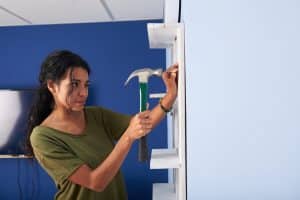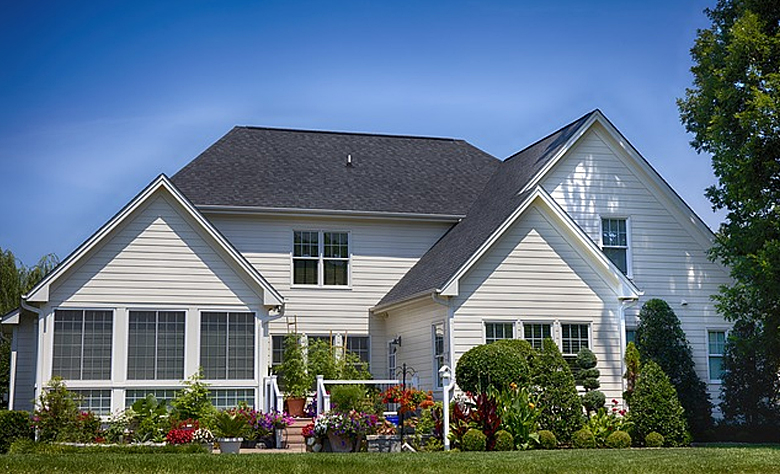What to Expect from UK Home Repair Costs in 2025

Anúncios
Home repair costs in the UK can vary significantly based on factors such as economic conditions, location, and the type of repair needed; budgeting effectively and conducting regular maintenance are essential strategies for homeowners to manage these expenses.
Home repair costs UK 2025 could surprise many homeowners. As we approach the new year, understanding potential changes can help you prepare your budget effectively. Ever considered how minor fixes can add up over time?
Anúncios
Overview of home repair costs in the UK

Understanding the overview of home repair costs in the UK is crucial for homeowners planning ahead. In recent years, these costs have fluctuated significantly due to various factors, including economic conditions and material prices.
Anúncios
Current Trends in Home Repair Costs
As of 2025, several trends are influencing home repair expenses. Generally, prices for common repairs have risen. This is due to inflation and changes in demand for materials and labor.
- Increased demand for skilled labor.
- Rising prices of building materials.
- Economic fluctuations affecting supply chains.
Common Types of Repairs and Their Costs
Different types of repairs will affect your budget differently. For instance, plumbing repairs can vary widely in cost based on severity and location. It’s important to be prepared for these potential expenses.
Regular maintenance can help you save in the long run. By addressing minor issues promptly, you can prevent larger problems that require extensive repairs. This approach can lower overall costs significantly.
Here are some common repair costs you might encounter:
- Roof repairs: Often range from £200 to £3,000 depending on the issue.
- Electrical work: Can vary widely, but average costs are around £150 per hour.
- Plumbing repairs: Typical costs are between £100 and £300.
As you consider potential repairs, it’s beneficial to obtain multiple quotes from contractors. Doing so can help you understand the market rates and find competitive pricing for your needs.
In summary, being aware of the home repair costs in the UK will help you to plan your budget effectively and avoid unexpected financial strain. Understanding these expenses enables you to maintain your property without breaking the bank.
Factors influencing repair costs in 2025
Many factors influencing repair costs in 2025 can affect homeowners across the UK. Understanding these factors is essential for budgeting and planning future repairs.
Economic Conditions
The economic landscape plays a significant role in determining repair costs. Inflation can cause prices for materials and labor to rise. This means that what used to be a simple repair may become costly.
- Increasing raw material prices.
- Labor shortages leading to higher wages.
- Economic growth affecting demand for services.
Seasonal Changes
Different times of the year can also impact repair costs. For instance, more repairs occur during the spring and summer months as homeowners take advantage of the better weather. This can create higher demand, driving prices upward.
In contrast, winter can bring unique challenges and urgent repairs, especially related to heating systems. Homeowners should prepare for potential spikes in costs during these busy seasons.
Location Variations
Repair costs can vary significantly based on location. Urban areas often have higher labor costs compared to rural regions. Additionally, some regions might experience more wear and tear due to environmental factors.
It’s beneficial to research local rates and trends to make informed decisions. Understanding the typical costs in your area will help you budget accurately.
Lastly, the condition of your home also drives repair costs. Older homes typically require more maintenance, and their repair needs may be more complex than newer properties. Regular inspection can help identify potential issues before they become costly repairs.
Common DIY repairs and their costs

Exploring the common DIY repairs and their costs can empower homeowners to tackle issues themselves. Knowing what repairs you can manage and their associated expenses is essential for budget planning.
Types of DIY Repairs
Several DIY repairs are straightforward and cost-effective. Common tasks include painting, patching drywall, and minor plumbing fixes. These projects often require basic tools and materials.
- Painting a room: Costs about £50 to £150 for paint and supplies.
- Patching drywall: Typically under £50 for materials.
- Fixing leaky faucets: You might spend around £20 to £40 for replacement parts.
Benefits of DIY Repairs
Engaging in DIY projects not only saves money but also provides a sense of accomplishment. Many homeowners find that tackling repairs themselves can be rewarding. This approach allows you to maintain better control over your expenses.
Moreover, completing DIY repairs can increase your home’s value. Simple updates often make a significant difference during resale. By investing in affordable projects, you can enhance curb appeal and functionality.
Regular maintenance also helps prevent larger issues from arising. By taking on small repairs, you can keep your home in good condition and reduce future repair costs.
As you consider taking on DIY repairs, it’s essential to weigh the costs of tools and materials against potential savings. Investing in high-quality tools for future use can be wise, too. Doing so allows for a more extensive range of repairs that can be tackled later on.
How to budget for home repairs in the UK
Creating a budget for home repairs in the UK is vital for maintaining a safe and functional living space. Understanding how to allocate funds effectively can prevent unexpected costs from arising.
Assess Your Home’s Condition
Start by evaluating your home’s current condition. Identifying areas that need attention allows for better planning. Regular inspections help you spot issues before they escalate.
- Check the roof for leaks or damage.
- Inspect plumbing for signs of wear and leaks.
- Evaluate electrical systems for safety and efficiency.
Estimate Costs
Once you have assessed areas needing repair, research estimated costs. Look into local services for quotes on common repairs. This information can help you create an accurate budget.
Consider these typical costs when estimating:
- Roof repairs might range from £100 to £3,000.
- Plumbing repairs generally cost between £75 and £200.
- Electrical work can average about £150 per hour.
Set Aside an Emergency Fund
In addition to budgeting for planned repairs, setting aside an emergency fund is essential. This fund should cover unforeseen repairs, like burst pipes or roof damage after a storm.
A good rule of thumb is to save 1% to 2% of your home’s value yearly for repairs. This proactive approach can ease financial stress when sudden issues arise.
Keep your budget flexible. As you gain more experience managing repairs, adjust your expenses based on what works best for you. Learning from past projects can inform your future budgeting strategies.
Tips for reducing home repair expenses
Reducing home repair expenses is essential for many homeowners. With a few strategies, you can save money while still maintaining your property.
Regular Maintenance
One of the best ways to lower repair costs is through regular maintenance. By keeping your home in good shape, you can avoid larger issues that are costly to fix.
- Inspect roofs and gutters for damage regularly.
- Change air filters in heating and cooling systems.
- Check for leaks in plumbing systems to prevent water damage.
DIY Repairs
Consider taking on minor repairs yourself. Many projects that seem overwhelming can be completed with basic tools and online tutorials. Investing time in learning DIY skills can lead to significant savings.
Common DIY projects include:
- Painting walls and touch-ups.
- Fixing squeaky doors and loose handles.
- Changing light fixtures.
Get Multiple Quotes
When hiring a professional for repairs, be sure to get multiple quotes. Different contractors may offer various prices. Taking the time to compare these can help you find a reasonable rate.
Check reviews and references to ensure you’re choosing a reputable service. This can also help you avoid costly mistakes from unqualified workers.
Use Quality Materials
While it may be tempting to choose cheaper materials, investing in quality can save money in the long run. Durable materials often last longer and require fewer repairs over time.
Look out for sales and discounts on home improvement products. Many stores offer seasonal sales which can help cut costs considerably.
Resources for home repair cost estimates

Utilizing resources for home repair cost estimates is crucial for homeowners looking to budget effectively. Accurate estimates help you plan for repairs and avoid unexpected expenses.
Online Calculators
Many websites offer online calculators where you can input details about the repair you need. These calculators provide quick estimates based on common costs in your area. They consider factors such as materials and labor rates.
- HomeAdvisor offers tools for estimating project costs.
- The National Association of Home Builders provides cost data for various repairs.
- Angie’s List has resources for finding reliable contractors and estimated prices.
Local Contractor Estimates
Another effective method is to obtain estimates directly from local contractors. By contacting multiple professionals, you can compare prices and service quality. This approach not only gives you a sense of the costs but also allows you to gauge the reputation of contractors.
Make sure to ask specific questions about what each estimate includes. This will ensure you get the best value for your money.
Home Improvement Stores
Visiting local home improvement stores can provide valuable information. Many stores offer workshops and guides on common repairs and their costs. Staff members can also assist you in understanding what materials you need and their associated costs.
Additionally, many home improvement stores provide pricing information for commonly used materials. Knowing these prices can help you gauge how much a DIY project will cost.
Community Resources
Local community programs and nonprofit organizations may offer resources for homeowners needing repairs. These organizations often provide financial aid or connect you with affordable labor.
Research local services in your area that can assist with home repairs. These resources can be invaluable for maintaining your home without breaking the bank.
When it comes to managing home repair costs, staying informed and proactive is key. By understanding the factors affecting repairs, budgeting effectively, and utilizing available resources, homeowners can maintain their properties without overspending.
Engaging in regular maintenance and considering DIY projects not only saves money but also increases home value. Remember to seek multiple quotes and use online tools for cost estimates. With careful planning and smart choices, you can navigate home repairs with confidence and ease.
FAQ – Home Repair Costs in the UK
How can I estimate the cost of home repairs?
You can use online calculators, get quotes from local contractors, and check pricing at home improvement stores to estimate repair costs.
What are some common DIY repairs I can do?
Common DIY repairs include painting, fixing leaky faucets, and patching drywall. These tasks often save you money and can be done with basic tools.
How can I prevent high repair costs?
Regular maintenance, such as inspecting roofs and plumbing, helps to catch issues early and prevent costly repairs in the future.
Why is it important to compare contractor quotes?
Comparing quotes allows you to find the best price and ensure you hire a reputable contractor, helping to make informed financial decisions.

Managing home repair costs in the UK requires careful planning and understanding of the factors that influence these expenses. By staying informed about current trends, keeping up with regular maintenance, and considering DIY repairs when appropriate, homeowners can avoid excessive costs and extend the lifespan of their properties.
Additionally, obtaining multiple quotes and investing in quality materials are key strategies to balance cost and value.
To further assist with your financial planning, check out this detailed resource on average home repair costs and practical saving tips: Average Costs to Repair a House.
With these insights, you’ll be better prepared to handle home repairs in 2025 and keep your home in great condition without unexpected financial burdens.
Liked the content?





